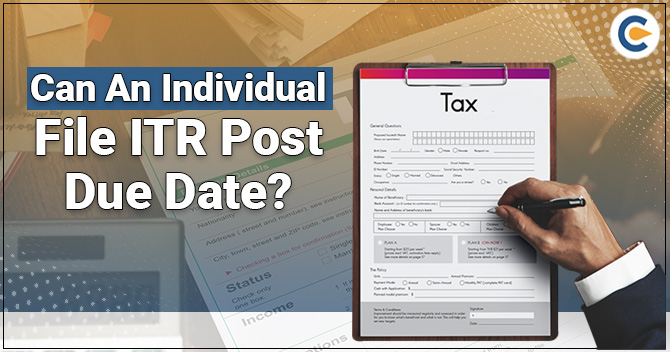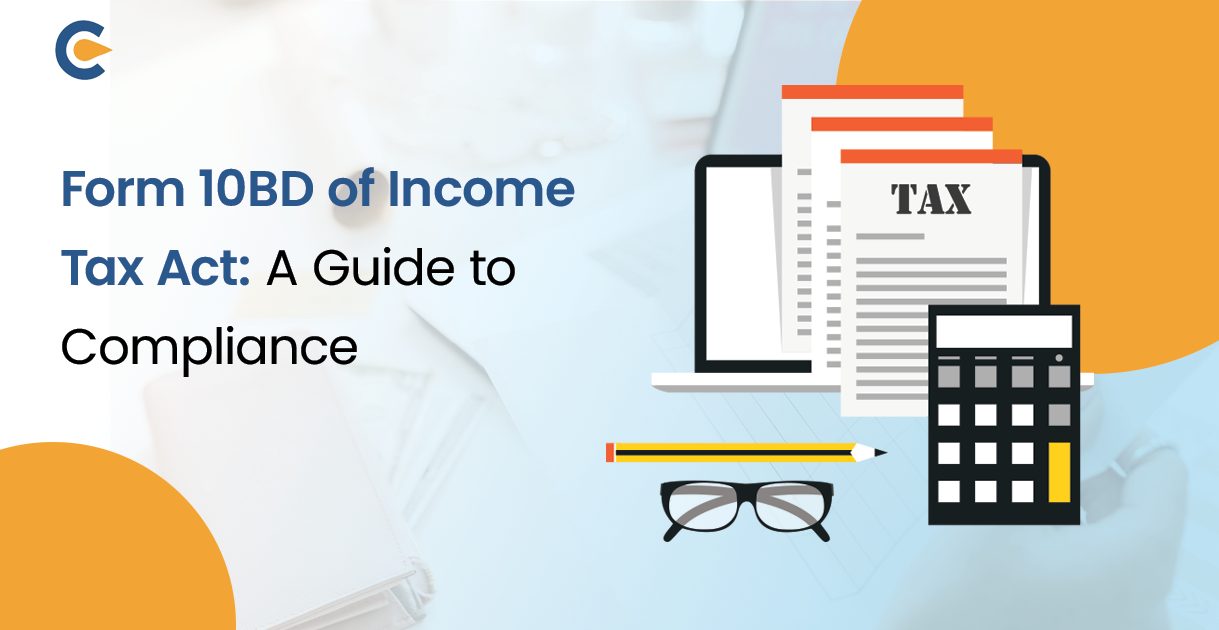The government directs that individual who earn a certain annual income must file an Income tax return within a pre-determined due date. The tax is calculated as per the Income-tax slab rate that the individual must pay. Failure to file ITR will invite penalties from the Income Tax Department.
Also, the individual who earns less than the specified level of income can file returns voluntarily. However, if an individual fails to file the return before the deadline, you can file the return after the due date. In this article, we pen down the options available with an individual who wants to file his/her ITR post due date.
Extension as per the Financial Year 20-21
In general, the due date for filing the Income-tax return for the F.Y 20-21 was July 2021. But the deadline to file ITR for the financial year 2020-21 has been extended twice-
From 31st July to 30th September 2021, and then to 31st December 2021.
Earlier, it was advisable to file the tax return before the due date, i.e., 31st December 2021.
Note-However, On 10th January 2022, CBDT has issued a circular extending the timelines for certain direct tax compliances for Financial Year 2020-21.
The extension is granted due to the increasing case of Corona pandemic and flaws on the newly launched income tax portal; CBDT has now extended the due date of filing ITR post due date to 31st March 2022
Circular Issued by CBDT-Extension Date
ITR filing due date extension:
- For taxpayers cited under Tax audit is extended to 15th Mar 2022
- For transfer pricing cases is extended to 15th March 2022
Furnishing Audit report:
- The due date to furnish the audit report is extended to 15th February 2022.
- For transfer pricing cases, the due date to furnish the audit report is extended to 15th February 2022.
Can an ITR after the due date be revised?
Earlier ITR post due date cannot be revised. However, from Financial Year 2016-17, an ITR post due date can also be revised. However, if you file your ITR after the deadline, you will miss out on certain gains, and also, a penalty will be levied.
Note- For the Financial Year 2020-21, the last date to file Belated return and revised return is the same, i.e., 31st March 2022. Therefore, if an individual electronically files the belated ITR on 31st March 2021, then he/she can still revise the ITR online on the last day. Also, a revision can be made for a mistake after it is e-filed
Limitations of filing ITR post due date
An individual will have to pay the penalty and Interest on due taxes, and there are certain limitations in the case of filing ITR post due date. An individual will not be allowed to be carried forward or set off the “loss under the head Capital gain, PGBP and “loss from owning and maintaining Racehorses” from succeeding years.
However, loss from the head “House property” and “unabsorbed depreciation” can be carried forward even in case of a belated return.
How to file a return after the due date filing?
An individual can file ITR after the due date and before the end of the relevant assessment year; however, the return cannot be filed beyond that. At times, the individual misses the deadline, and it happens mainly in NRIs cases where they have income taxable in India & TDS has also been deducted but have failed to file the return. It conclusively results in loss of TDS refund, which could have been claimed by filing the ITR.
However, there is an alternative to file ITR even if the due date is missed.
As per Section 119 (2)(b), CBDT can authorize income-tax authority to accept an application or TDS refund after the expiry of the period specified by the Income-tax Act. Below mentioned is the procedure to be followed for deciding such matters.
- Request the Income Tax Commissioner authority to permit you to file income tax returns.
- Clarify the reason for not filing the ITR with the deadline.
- The administration can accept the application based on the genuineness and correctness of the request.
Note- For request applications, the return must be filed within six years from the end of the AY for filing the return. For example, if an individual has missed filing the ITR on the due date of 31st March 2020, you can file such an application until 31st March 2025.
IV- After proper verification of all the details provided by assessee, the commissioner or principal commissioner, as case may be, shall decide upon the benefit of doubt following law shall pass an order under section 119(2)(b). The order given will be reflected under the ‘e-proceeding’ tab only and shall also be provided on registered email id of the assessee.
V- After receiving the order, an assessee may proceed to file the return
What happens when you have paid your taxes but missed filing the ITR?
Suppose you have paid the taxes on time but missed filing ITR. In that case, an assessee cannot file ITR or apply for condonation of delay. Also, in that case, the department may issue a notice under Section 271F for not filing ITR.
Penalty-An assessee will have to pay a penalty of up to Rs.5,000 for not filing the return within the deadline. But in case genuine reasons are given for not filing the ITR, and if the officer is satisfied with reason, you may not have to pay the penalty.
Also, the department can take legal action against you by issuing a notice and imposing penalties. In case notice is sent by the department, an assessee must respond to it on the income tax e-filing portal.
Under-reporting of the Income-
If an assessee has under-reported the income, a penalty of up to 200% of the tax payable will be levied. In case of under-reported income, if the taxpayer has paid taxes with Interest after the deadline, the assessing officer may excuse his penalty.
Consequences of Filing of ITR post due date
The IT department allows taxpayers to file returns post due date in particular cases. However, Interest on delay may be applicable under sections 234 A,234B,234C.
Also, Under Section 234F, A fee would be levied upto Rs 5000 if the return is filed on or before 31st Mar of the relevant Assessment Year. If the filing is done after 31st March, the penalty can go upto Rs 10,000.
Also, it must be noted that individuals filing ITR after the due date with taxable income-
- Above Rs 5,00,000 will have to pay a penalty of Rs 5,000 and,
- For below Rs 5,00,000 the penalty amount is Rs 1,000
Note: However, in case of extension provided by the government, no late fee is charged till that date.
Conclusion-
It is prudent for a taxpayer to file an IT return within the due date because, after the due date, the individual can file a return but will have to lose some benefits like carrying forward of losses, resulting in penalties and, in worst scenarios, imprisonment.
Read our Article:Income Tax Returns: Which is the Correct ITR Form for you?











